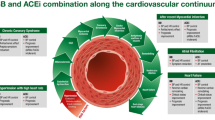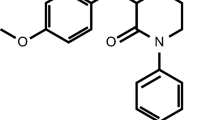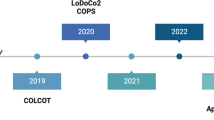Abstract
This paper reviews the results of 4 recent clinical trials, Platelet Receptor inhibition for Ischaemic Syndrome Management (PRISM), Platelet Receptor inhibition for Ischaemic Syndrome Management in Patients Limited to very Unstable Signs and symptoms (PRISM-PLUS), Platelet IIb/IIIa Antagonist for the Reduction of Acute coronary syndrome events in a Global Organisation Network (PARAGON A), and Platelet IIb/IIIa in Unstable angina Receptor Suppression Using Integrilin Therapy (PURSUIT), that have investigated the use of glycoprotein (GP) IIb/IIIa inhibitors in with non-ST-segment elevation acute coronary syndromes.
The PRISM trial randomised 3232 patients with non-ST-elevation acute coronary syndromes to either tirofiban or heparin. Patients receiving tirofiban had a 32% reduction in the likelihood of death, myocardial infarction (MI) or refractory ischaemia at 48 hours and a 36% reduction in death at 30 days (2.3 vs 3.6%, p = 0.02).
The PRISM-PLUS trial randomised 1915 patients with severe non-ST-elevation acute coronary syndromes to either tirofiban alone, heparin alone or the combination of tirofiban and heparin. Patients treated with the combination of tirofiban and heparin had a 27% reduction in death or nonfatal MI at 30 days (8.7 vs 11.9%, p = 0.027).
The PARAGON A trial randomised 2282 patients with non-ST-elevation acute coronary syndromes to either high or low dose lamifiban, with or without heparin, or heparin alone. There was no reduction in the rate of death at day 30 or nonfatal MI in patients who received lamifiban; however, at 6 months a significant treatment effect was seen in patients who received low dose lamifiban (13.7%, p = 0.02) but not high dose lamifiban (16.4%, p = 0.38) compared with those who received heparin alone (18.1%).
The PURSUIT trial randomised 10 948 patients with non-ST-elevation acute coronary syndromes to either eptifibatide or placebo. Patients receiving eptifibatide had a 9.6% relative, and 1.5% absolute, reduction in death or MI at 30 days (15.7 vs 14.2%, p = 0.04).
GP IIb/IIIa inhibitors are revolutionising the way we treat patients with atherosclerotic coronary artery disease. The results of these trials demonstrate that the GP IIb/IIIa inhibitors tirofiban, lamifiban, and eptifibatide are beneficial in the non-ST-elevation acute coronary syndrome population. In the future, acute therapy with an intravenous GP IIb/IIIa inhibitor followed by long term administration of an oral GP Ilb/IIIa inhibitor may be the cornerstone of the management of patients with acute coronary syndromes.
Similar content being viewed by others
References
Braunwald E, Mark D, Jones R, et al. Unstable angina: diagnosis and management. Clinical practice guideline: number 10 [publication 94-0602]. Rockville (MD): Agency for Health Care Policy and Research, 1994
Fuster V, Badimon L, Badimon J, et al. The pathogenesis of coronary artery disease and the acute coronary syndromes. N Engl J Med 1992; 326: 310–8, 342-50
Coller BS. Antiplatelet agents in the prevention and therapy of thrombosis. Ann Rev Med 1992; 43: 171–80
Fuster V, Dyken ML, Vokonas PS, et al. Aspirin as a therapeutic agent in cardiovascular disease. Circulation 1993; 87: 659–75
Ridker PM, Cushman M, Stampfer MJ, et al. Inflammation, aspirin, and the risk of cardiovascular disease in apparently healthy men. N Engl J Med 1997; 336: 973–9
Antiplatelet Trialists Collaboration. Collaborative overview of randomised trials of antiplatelet therapy: I. Prevention of death, myocardial infarction, and stroke by prolonged antiplatelet therapy in various categories of patients. BMJ 1994; 308: 81–106
Second International Study of Infarct Survival (ISIS-2) Collaborative Group. Randomised trial of intravenous streptokinase, oral aspirin, both or neither among 17 187 cases of suspected acute myocardial infarction: ISIS-2. Lancet 1988; 2: 349–59
Global Use of Strategies to Open Occluded Coronary Arteries (GUSTO) IIb Investigators. A comparison of recombinant hirudin with heparin for the treatment of acute coronary syndromes. N Engl J Med 1996; 335: 775–82
Platelet Glycoprotein IIb/IIIa in Unstable Angina: Receptor Suppression Using Integrilin Therapy (PURSUIT) Trial Investigators. Inhibition of platelet glycoprotein IIb/IIIa with eptifibatide in patients with acute coronary syndromes without persistent ST-segment elevation. N Engl J Med 1998; 339: 436–43
Alexander JH, Harrington RA. Antiplatelet and antithrombin therapies in the acute coronary syndromes. Curr Opin Cardiol 1997; 12: 427–37
Coller BS, Peerschke EI, Scudder LE, et al. Amurine monoclonal antibody that completely blocks the binding of fibrinogen to platelets produces a thromboasthenic-like state in normal platelets and binds to glycoproteins IIb and/or IIIa. J Clin Invest 1983; 72: 325–38
Kleiman NS, Ohman M, Califf RM, et al. Profound inhibition of platelet aggregation with monoclonal antibody 7E3 Fab after thrombolytic therapy: results of the Thrombolysis and Angioplasty in Myocardial Infarction (TAMI-8) pilot study. J Am Coll Cardiol 1993; 22: 381–9
EPIC Investigators. Use of a monoclonal antibody-directed against the platelet glycoprotein IIb/IIIa receptor in high-risk coronary angioplasty. N Engl J Med 1993; 330: 956–61
EPILOG Investigators. Platelet glycoprotein IIb/IIIa receptor blockade and low-dose heparin during percutaneous coronary revascularization. N Engl J Med 1997; 336: 1689–96
CAPTURE Investigators. Randomised placebo-controlled trial of abciximab before and during coronary intervention in refractory unstable angina: the CAPTURE study. Lancet 1997; 349: 1429–35
Tcheng JE, Harrington RA, Kottke-Marchant K, et al. Multicenter, randomized, double-blind, placebo-controlled trial of the platelet integrin glycoprotein IIb/IIIa blocker integrelin in elective coronary intervention. Circulation 1995; 91: 2151–7
IMPACT-II Investigators. Randomised placebo-controlled trial of effect of eptifibatide on complications of percutaneous coronary intervention: IMPACT-II. Lancet 1997; 349: 1422–8
Harrington RA, Kleiman NS, Kottke-Marchant K, et al. Immediate and reversible platelet inhibition after intravenous administration of a peptide glycoprotein IIb/IIIa inhibitor during percutaneous coronary intervention. Am J Cardiol 1995; 76: 1222–7
Ohman EM, Kleiman NS, Gacioch G, et al. Combined accelerated tissue-plasminogen activator and platelet glycoprotein IIb/IIIa integrin receptor blackade with integrilin in acute myocardial infarction: results of a randomised, placebo-controlled, dose-ranging trial. Circulation 1997; 95: 846–54
Schulman SP, Goldschmidt-Clermont PJ, Topol EJ, et al. Effects of integrilin, a platelet glycoprotein IIb/IIIa inhibitor in unstable angina: a randomised multicenter trial. Circulation 1996; 94: 2083–9
RESTORE Investigators. Effects of platelet glycoprotein IIb/IIIa blockade with tirofiban on adverse cardiac events in patients with unstable angina or acute myocardial infarction undergoing coronary angioplasty. Circulation 1997; 96: 1445–53
Platelet Receptor Inhibition in Ischemic Syndrome Management (PRISM) Study Investigators. A comparison of aspirin plus tirofiban with aspirin plus heparin for unstable angina. N Engl J Med 1998; 338: 1498–505
Platelet Receptor Inhibition in Ischemic Syndrome Management in Patients Limited by Unstable Signs and Symptoms (PRISM-PLUS) Study Investigators. Inhibition of the platelet glycoprotein IIb/IIIa receptor with tirofiban in unstable angina and non-Q-wave myocardial infarction. N Engl J Med 1998; 338: 1488–97
Theroux P, Kouz S, Roy L, et al., on behalf of the Investigators. Platelet membrane receptor glycoprotein IIb/IIIa antagonism in unstable angina: the Canadian Lamifiban Study. Circulation 1996; 94: 899–905
PARAGON Investigators. International, randomised, controlled trial of lamifiban (a platelet glycoprotein IIb/IIIa inhibitor), heparin or both in unstable angina. Circulation 1998; 97: 2386–95
PARADIGM Investigators. Combining thrombolysis with the platelet glycoprotein IIb/IIIa inhibitor lamifiban: results of the Platelet Aggregation Receptor Antagonist Dose Investigation and reperfusion Gain in Myocardial Infarction (PARADIGM) trial. J Am Coll Cardiol. In press
Lincoff MA, Califf RM, Anderson KM, et al., for the EPIC Investigators. Evidence for prevention of death and myocardial infarction with platelet membrane glycoprotein IIb/IIIa receptor blockade by abciximab (c7E3 Fab) among patients with unstable angina undergoing percutaneous coronary revascularization. J Am Coll Cardiol 1997; 30: 149–56
Topol EJ, Ferguson JJ, Weisman HF, et al. Long-term protection from myocardial ischemie events in a randomized trial of brief integrin B3 blockade with percutaneous coronary intervention. JAMA 1997; 278: 479–84
Theroux P. Oral inhibitors of platelet membrane recpetor glycoprotein IIb/IIIa in clinical cardiology: issues and opportunities. Am Heart J 1998; 135 (Pt 2 Suppl.): S107–12
Author information
Authors and Affiliations
Corresponding author
Rights and permissions
About this article
Cite this article
Alexander, J.H., Harrington, R.A. Recent Antiplatelet Drug Trials in the Acute Coronary Syndromes. Drugs 56, 965–976 (1998). https://doi.org/10.2165/00003495-199856060-00002
Published:
Issue Date:
DOI: https://doi.org/10.2165/00003495-199856060-00002




